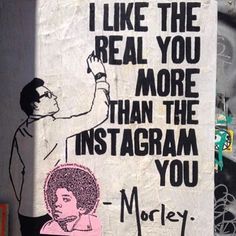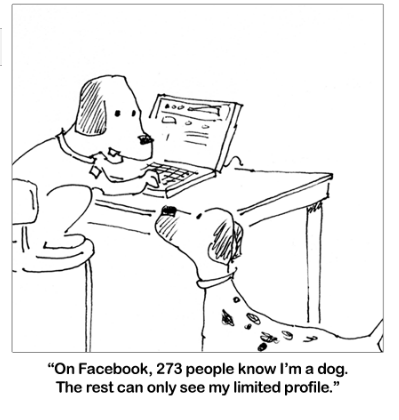I say this jokingly, but I think anyone who was over the age of 30 when Myspace came out should have to take an internet competency test before being allowed to use social media. As a Millennial, I am grateful to be part of the last generation that remembers life pre-internet- my childhood was Snapchat, texting, and dickpic free. Today’s adolescents can’t comprehend what life would be without the internet, and Generation Y and Boomers can’t comprehend having a childhood that has the internet. We Millennials are in a unique position in that we came to age during the epoch of the Digital Age- we were teenagers during Myspace, and learned how to navigate this whole new way of communicating and expressing ourselves digitally and IRL, side by side. So, for the most part, we know the rules and we formed the culture.

honestly, this should be illegal
A new study published this week found that older people spread more fake news than younger people during the 2016 election. (Duhhhhh.) But this is a real problem and it’s easy for me to get frustrated by it. It’s evidenced not just within the digital-political, but within the digital-personal, as well. Old people don’t understand the internet the same way that millennials do. I’m sure we all have a family member who has been hurt because we didn’t like their status or didn’t accept their friend request. A few years ago my dad (and hold up real quick, shout out to my dad, who is legit the smartest/wisest human I’ve ever met) asked me, in a very kind and concerned way, if I was ashamed to be a Collins (my last name) because my Facebook profile name is my first and middle name. Whatt?? I felt so awful- legit that thought never even crossed my mind. Never had I the thought of being ashamed of being a Collins in my entire life.
And it comes down to this gap: I wasn’t aware that my internet action caused him pain, and he wasn’t aware that Firstname Middlename nomenclature thing was a thing. I explained to him that I chose this naming because I didn’t necessarily want to be easily searchable on the internet, and he got it. The Culture of Internet Communication (is there a word or phrase that exists for this yet? lmk plz if so) is still in its forming infancy. We’re all just figuring it out, but I can tell you this, the generation gap here is wide. We are not communicating online effectively between generations, and that’s where fake/non-important news has a good opportunity to take prey.
So what do we do about it? Well, combating it head on, which means kindly calling out fake news when you see it, even if it seems like not that big of a deal. When your mom’s friend is sharing news that isn’t true, message them and let them know. When you see someone getting outraged over news that isn’t news, let them know what’s up, with kindness and compassion. These rules go for everyone too, not just old people. Because outrage is contagious, and it is best to save our energy for things that matter, not a fake story about an Atheist orthodontist giving mandatory abortions to all of her pregnant patients.
The Digital Era has birthed this new age of Post Truth and learning how to effectively utilize the internet is paramount as we gear up for 2020. Luckily, we have an advantage: we know the culture of the internet. We grew up in it. Some of us navigate it easier than others (the study found that people who spend more time on the internet spread less news… once again, duh). We can utilize this to educate people who don’t understand the internet and save that outrage as fuel for more important fires.





